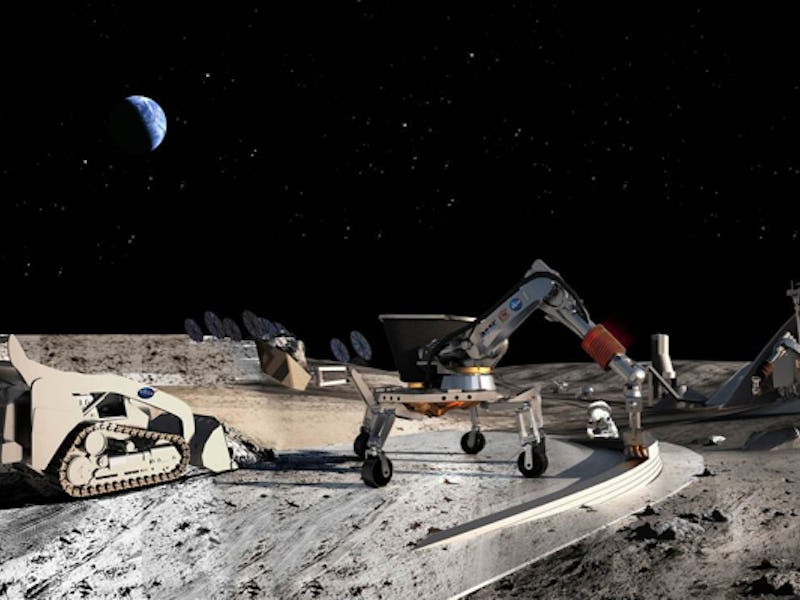Tiny Luxembourg Announces It Will Begin Space Mining Missions by 2020
The country wants to become "a top 10 space faring nation."

At a press conference today, the government of Luxembourg announced plans to conduct its first space mining mission in just three years’ time, and a new investment of $223 million earmarked specifically for space mining on other planets, moons, and near Earth objects like asteroids and comets.
The mission itself will likely just be a research operation to scout for asteroids close by that may possess valuable resources. So we’re not going to see an astronaut or a probe drill into a rock and bring back something to Earth; nevertheless, this is an essential first step for what a regular space mining operation would look like.
The announcement is little surprise to anyone who’s been paying attention to the small country that boasts a population of just half-million. Since the country’s February announcement that it was establishing a legal framework to encourage companies within its borders to pursue space mining technologies and operations, Luxembourg has already begun to forge partnerships with various space exploration and technologies companies, as part of its SpaceResources.lu initiative.
While $226 million is a much larger investment than most anticipated, Luxembourg has not been shy about its intentions to become the premier space mining country in the world — and it will take heavy investments like that to put the country on the map.
Jean-Jacques Dordain
“The spaceresources.lu initiative is timely, and will epitomize innovation, cooperation as well as competition, while being attractive to entrepreneurs and investors far beyond Europe and the traditional space industry, said Jean-Jacques Dordain, former director of the ESA, in a news release. The arrival of American entrepreneurs illustrates the relevance of the initiative and Luxembourg’s triple legacy of mining, finance, and space is a guarantee for success.”
Luxembourg’s space-mining legislation is expected to go into effect starting in 2017. That law aims to provide companies with the guaranteed rights to whatever natural resources and precious minerals they extract from other worlds — similar to what the United States Congress passed last winter. Both the United States and Luxembourg say those laws do not conflict with the obligations accorded by the Outer Space Treaty — which both countries argue bans owning a celestial body, but not the resources found in those environments.
It remains to be seen whether other entities will file complaints or legal action against either government.
In any case, Luxembourg’s deputy prime minister, Etienne Schneider, told reporters on Friday that the entire international community needs to overhaul the laws and rules set forth in order to finally take advantage of current technologies that will pave the way for space mining in the next few decades.
Luxembourg plans to infuse the money into more research and development projects aimed at making space mining a reality. “We have a first budget to get started but if we need more money, we will be able to provide it,” Schneider said.
“Luxembourg aims to be in the top 10 space-faring nations in the world.”